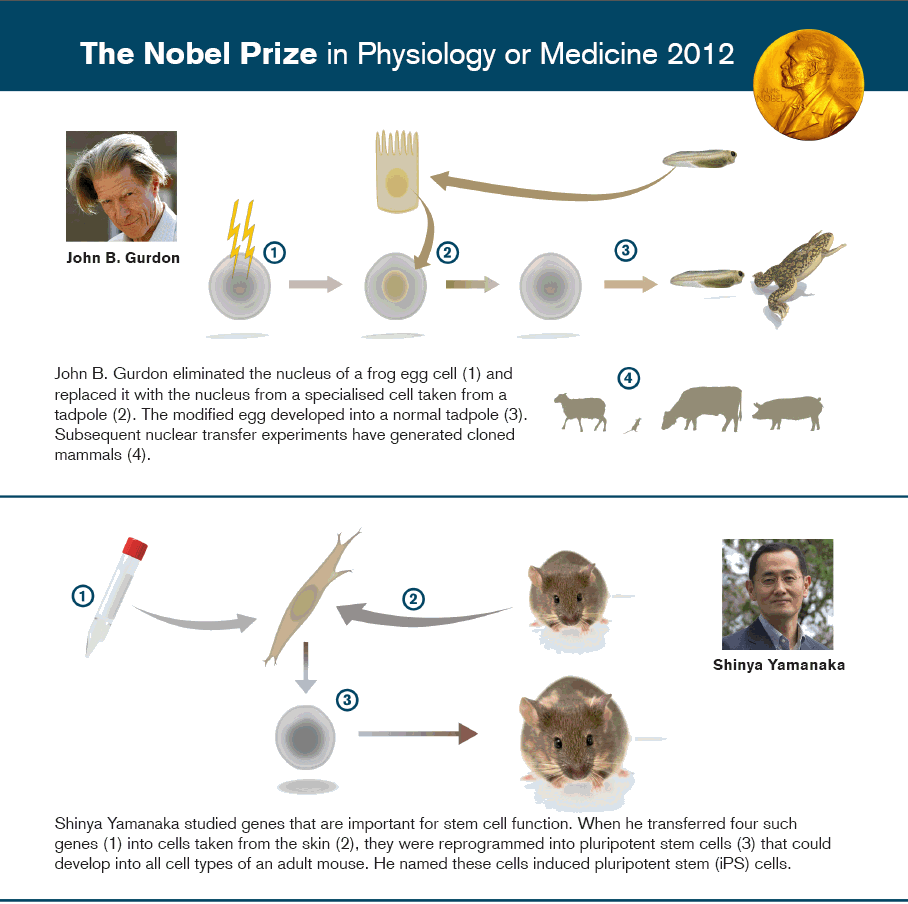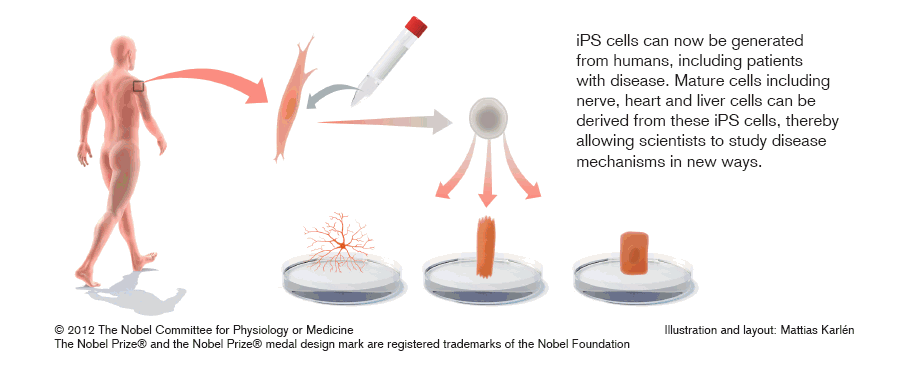|
News & Views item - October 2012 |
![]() The 2012 Nobel Prize in Physiology or Medicine is Announced. (October 9,
2012)
The 2012 Nobel Prize in Physiology or Medicine is Announced. (October 9,
2012)
The Nobel Prize in Physiology or Medicine for 2012 was awarded jointly to Sir John B. Gurdon and Shinya Yamanaka "for the discovery that mature cells can be reprogrammed to become pluripotent".
Summarising the rationale for the award the Karolinska Institute's Nobel Assembly said:
The Nobel Prize recognizes two scientists who discovered that mature, specialised cells can be reprogrammed to become immature cells capable of developing into all tissues of the body. Their findings have revolutionised our understanding of how cells and organisms develop.
John B. Gurdon discovered in 1962 that the specialisation of cells is
reversible. In a classic experiment, he replaced the immature cell nucleus in an
egg cell of a frog with the nucleus from a mature intestinal cell. This modified
egg cell developed into a normal tadpole. The DNA of the mature cell still had
all the information needed to develop all cells in the frog.
Shinya Yamanaka discovered more than 40 years later, in 2006, how intact mature
cells in mice could be reprogrammed to become immature stem cells. Surprisingly,
by introducing only a few genes, he could reprogram mature cells to become
pluripotent stem cells, i.e. immature cells that are able to develop into all
types of cells in the body.
These groundbreaking discoveries have completely changed our view of the
development and cellular specialisation. We now understand that the mature cell
does not have to be confined forever to its specialised state. Textbooks have
been rewritten and new research fields have been established. By reprogramming
human cells, scientists have created new opportunities to study diseases and
develop methods for diagnosis and therapy.
The full press release is available here and
more detailed information is contained in the 12-page "Scientific Background"
here![]() .
.


_____________________________________________
Nicholas Wade in The New Your Times writes:
Dr. Gurdon and Dr. Yamanaka will receive a handsome cash prize, but one reduced by 20 percent from previous years. The Nobel Foundation announced in June that its investments had not kept pace with expenses over the past decade, and that the prize money would be reduced from 10 million to 8 million Swedish krona. Still, at today’s exchange rate, even this is worth $1.2 million.
In a brief interview today, Dr. Yamanaka, who was born in 1962 in Higashiosaka,
Japan, said that he had trained as surgeon but “gave it up because I learned I
was not talented.” Having seen how little the best surgeons could do to help
some patients, he decided to go into basic research and did postdoctoral
training at the Gladstone Institutes in California.
In an interview, Dr. Gurdon said he had recovered from the setback of his
biology teacher’s report with the help of his family and an uncle who studied
snails. Asked how he felt about having to wait 50 years for his prize, he said,
“I am lucky to be still alive.”